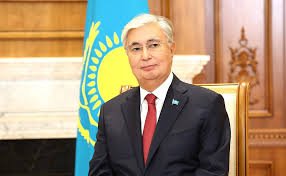Bulgaria Eyes Nuclear Power to Fuel AI Ambitions and Attract Data Centers

Sofia, The Gulf Observer: Bulgaria is positioning its nuclear energy infrastructure as a strategic asset to attract investment in artificial intelligence (AI) and data center development, as national leaders explore innovative energy solutions to support the country’s growing tech sector.
According to BNR, the Kozloduy Nuclear Power Plant (NPP) is being considered a key location for powering future data centers and AI initiatives, which demand large-scale, stable, and affordable energy. The plan aligns with global trends as countries seek sustainable ways to meet the increasing energy requirements of next-generation technologies.
President Rumen Radev and Minister of Energy Zhecho Stankov recently voiced support for the initiative, emphasizing that Bulgaria’s expanding nuclear capacity could become a magnet for tech investment. Minister Stankov even proposed organizing a roadshow to showcase Bulgaria’s nuclear-driven digital potential to international investors.
Currently, Bulgaria hosts about 20 data centers across Sofia, Plovdiv, and Ruse, managed by 11 different organizations. The “Discoverer” supercomputer, a flagship AI project based at Sofia Tech Park, symbolizes the country’s aspirations in high-performance computing. Operating at peak, Discoverer consumes around 1 megawatt of power, highlighting the sector’s pressing energy demands.
To meet these demands, small modular reactors (SMRs) are being explored as a viable alternative to traditional power sources. SMRs offer localized, scalable, and reliable energy solutions, though their commercial deployment in powering data centers remains limited. Experts such as Zdravko Nikolov, CEO of Equinix Bulgaria, caution that economic viability, rather than availability, is the greater challenge for data center operations.
Petar Stattev of Sofia Tech Park noted that using modular reactors could dramatically cut operational costs for supercomputers, freeing resources to invest in advanced computing capabilities, including quantum modules.
Globally, energy policies vary widely: France is expanding its nuclear infrastructure to support its digital ecosystem, while Germany has shut down all its nuclear plants under environmental pressure. Meanwhile, countries like the USA, India, Japan, South Korea, and China are actively pursuing SMR technologies for tech infrastructure, with the U.S. even considering nuclear fusion for powering AI systems.
In Bulgaria, the seventh unit at Kozloduy NPP is expected to be operational by 2033–2034, and a government working group is currently focused on expanding the nation’s nuclear capabilities. Tsanko Bachiiski, head of the Nuclear Regulatory Agency, confirmed that SMRs are a promising solution, though certification delays in Europe may slow progress.
As Bulgaria works to position itself as a regional digital hub, the integration of nuclear power into its technology sector could become a game-changer—providing the energy stability and cost efficiency necessary to fuel its AI-driven future.


